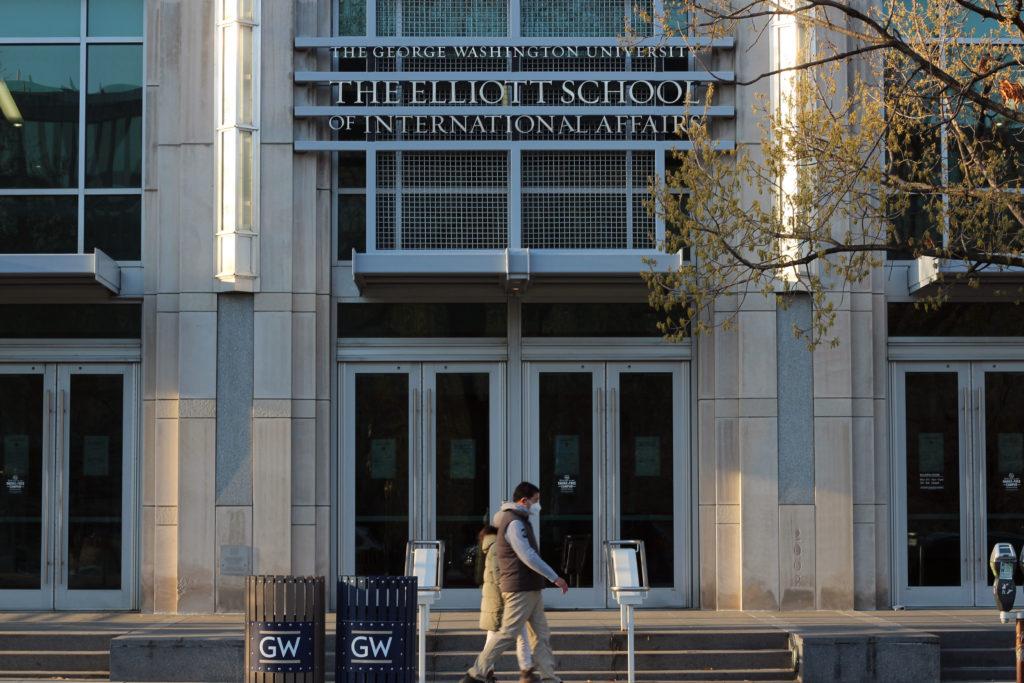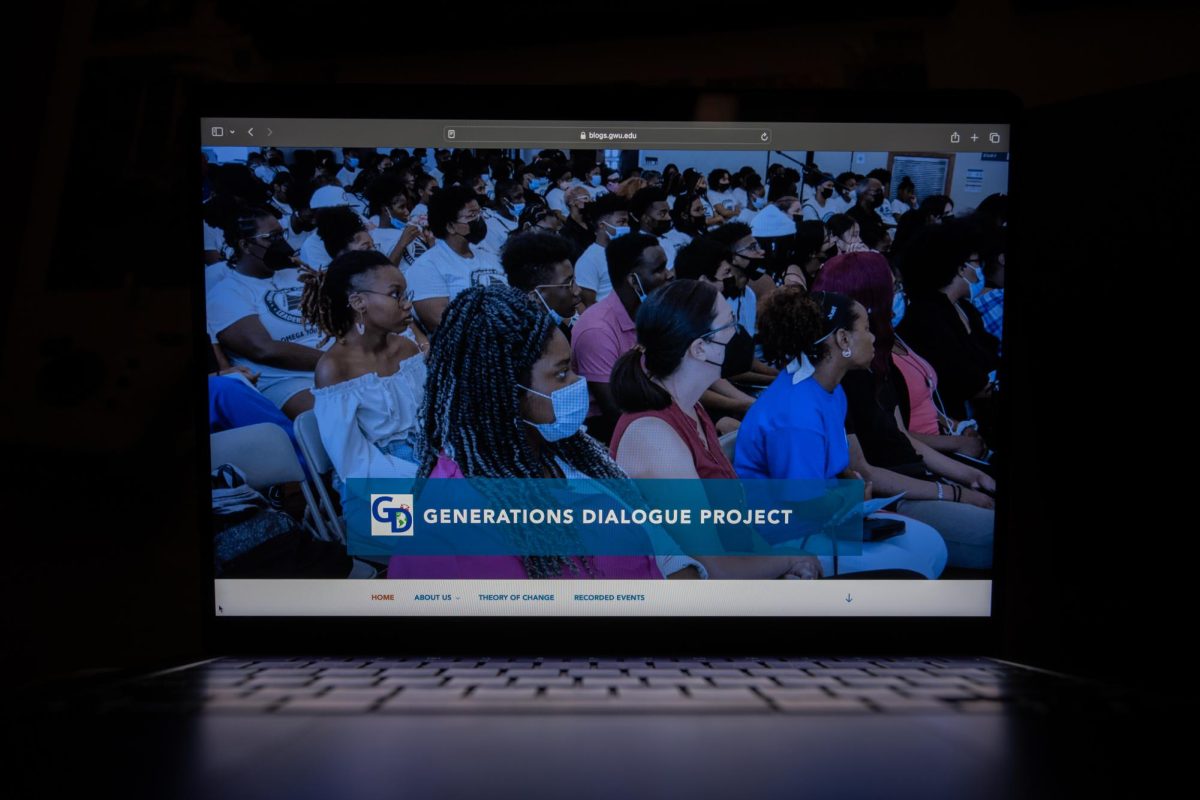Students in the Elliott School of International Affairs launched a consortium last month to promote women in the study of national security.
The D.C. Student Consortium on Women, Peace and Security is made up of 18 universities throughout the DMV partnering with a nonpartisan working group studying women in peace building and seeks to share expertise on women’s and gender issues in security and foreign policy. Students said members of the consortium study subjects and identity groups that are often overlooked within security and foreign policy, like the LGBTQ community, before writing and submitting policy briefs to members of Congress and other policymakers.
Shirley Graham, the founder and faculty mentor of the consortium and an associate professor of practice in international affairs, said the consortium aims to encourage innovative thinking within the U.S. Civil Society Working Group’s women, peace and security agenda. The agenda is based on a United Nations Security Council resolution that calls for more participation for women in peace-building efforts.
“One of the key objectives that we came up with was to address structural barriers that prohibit the meaningful implementation of the women, peace and security agenda,” Graham said. “We decided that within that particular objective, we wanted to target outreach to youth peace and security groups and other coalitions working in this space.”
Graham said the consortium will study how conflicts and wars affect women, men, nonbinary people and “gender and sexual minorities” to promote a “gendered approach” to security and feminist foreign policies.
Graham said she reached out to potentially interested students, like male allies and members of the LGBTQ community, to join the consortium to address barriers that limit the discussion of topics, like LGBTQ issues and feminist foreign policy.
“I already was very aware that I had a very strong and interested movement of students within the school who were conducting research in this area and were looking for ways of promoting, sharing and publicizing their research,” Graham said.
Graham said about 10 students, many of whom are master’s students, responded to her initial call to join the consortium. She said students contacted universities and created collaborative events like a panel discussion with the United Nations Commission on the Status of Women, which promotes women’s rights and shapes global standards on gender equality and female empowerment.
“By bringing in students who have the time and the energy and the focus on feminist research and feminist IR theory and could bring creative ideas to our discussions, it was very exciting to me and to the members of the Civil Society Working Group,” Graham said.
Graham said connecting her students working on the consortium with the CSWG was a “win-win opportunity” since the working group would get new perspectives from a younger generation of thinkers and leaders. Graham said students can also use the consortium to build their career networks and receive mentorship from experts in the field.
“We can be part of this process that is educating and informing the U.S. administration and Congress,” Graham said. “That is really where this kind of synergistically all came together.”
Students said they hope an increase in student and faculty interest in GW’s chapter of the consortium will help them become a formal student organization.
Nick Zuroski, a second-year graduate student pursuing a master’s degree in international affairs, said a “healthy” number of students come to the consortium’s weekly meetings. He said students established nine student leadership positions and developed the chapter’s constitution to possibly qualify for funding next fall.
“It has been a lot of work because when you have this type of organization, it sits in a weird place because you’re in academia, but you’re working alongside civil society, and you’re trying to bridge these relationships, not just the GW but with other universities in D.C. consortium,” Zuroski said. “It’s essentially all volunteerism, which can be incredibly hard to sustain, so you have to have a very strategic and coordinated approach when you’re doing that.”
He said he hopes more undergraduate students take leadership positions since they would be able to participate for the four years they are at GW as opposed to graduate students who mostly attend the University for two years.
Zuroski said the consortium has sought to establish stronger working relationships with other universities’ faculty and students through a newsletter, which members launched to keep involved participants informed.
“What we’re really trying to do is create this network of faculty that are really brought into the consortium and believe in the work and pull their students into the operations of the consortium and have their students research and publish,” he said.
Noelle Cohn, a first-year graduate student pursuing a master’s degree in international affairs, said three of the 18 universities involved have already started developing their own chapters of the consortium. She said the consortium is meeting and working with faculty from the other involved schools, like the University of the District of Columbia and the Northern Virginia Community College.
She said the consortium held a launch event in March that garnered interest for potential collaborations with organizations outside of the academic sphere, like the Geneva Center for Security Policy.
“We’ve been able to meet so many different students, and that was kind of how it started in that we took the initiative to reach out, but it really didn’t take a lot of effort on our part because there are so many people so passionate about the WPS agenda,” Cohn said.
Cohn said she hopes students who are interested in women, peace and security in foreign policy join the consortium because “gendered” analyses of security policy are often ignored.
“At the end of the day, the reason why this hasn’t really been acknowledged is because even in terms of academia, which is more progressive, it often gets left out,” she said.
Alexandra Kicior contributed to reporting.






